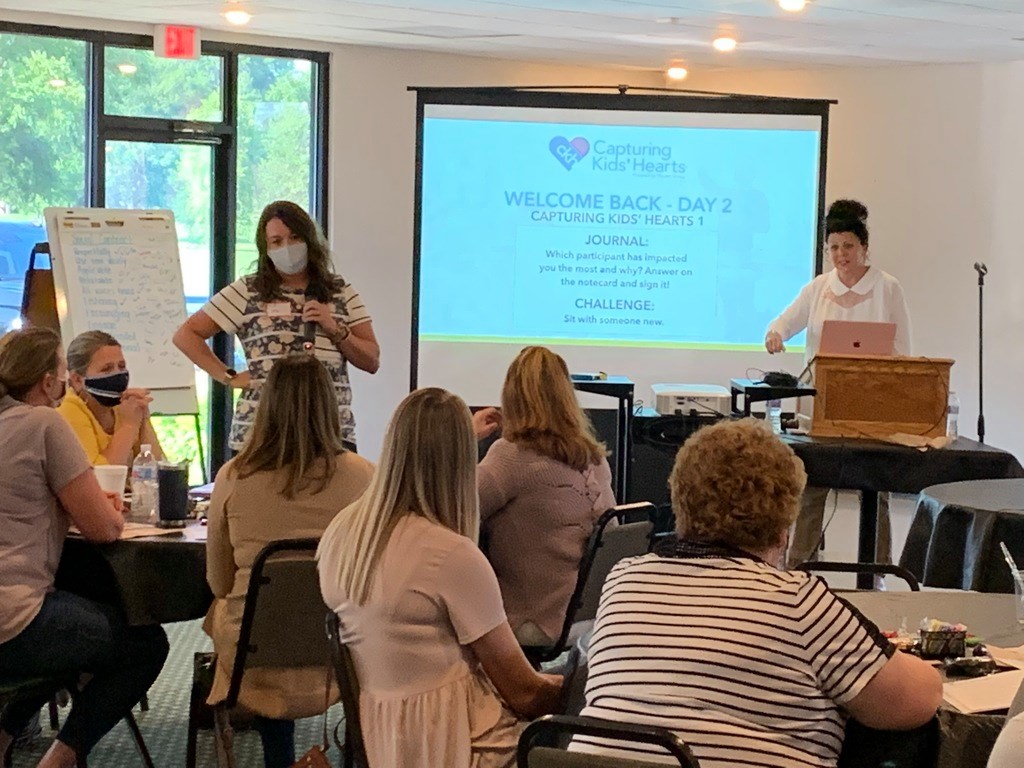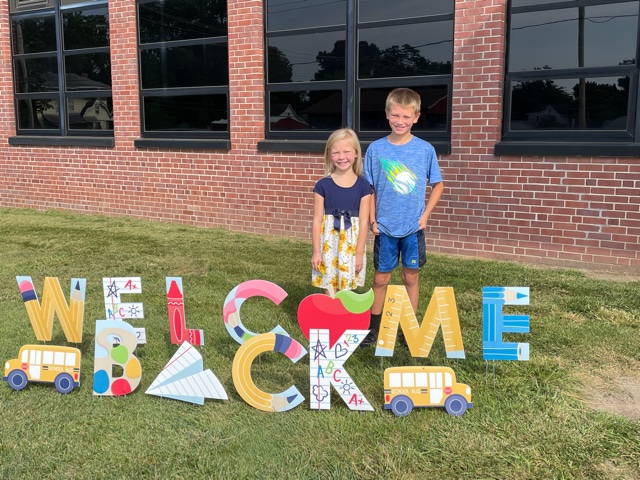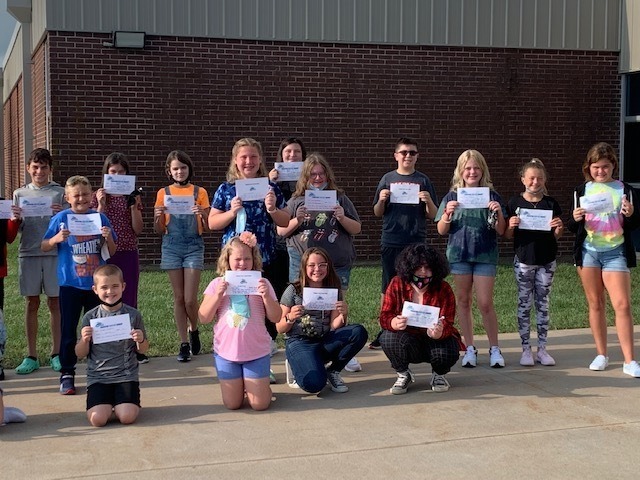“If you answer the question every time with ‘what’s best for kids,’ you usually come up with some pretty good answers.”
Those are the words of superintendent Brad Tuttle, a lifelong educator, leader, and baseball coach and scout who has for the past five years been guiding the Jersey Community Unit School District #100 (Jersey CUSD 100) in Southern Illinois.
The district, which is 40 minutes north of St. Louis across the Mississippi River, is the third-most expansive in the state and one that is decidedly more rural than urban. The distance between the four schools in Jerseyville and its other in Grafton is vast.
“Our buses go around the world in miles every six days,” Tuttle says.
While that does provide challenges, it also gives this leader a chance to bring them all together, to reach students and families from the “best of both worlds” and provide them with boundless opportunities.
“I love this district,” says Tuttle, who is also a member of the DA Leadership Institute. “Good, hard-working families. They value education, whether it means becoming a doctor, or going to a community college and getting a vocational degree. I feel like we’re desired to work for. I think we do a super job of educating kids.”
Despite teacher shortages that have ravaged the nation and have been heightened by the COVID-19 pandemic, Jersey CUSD 100 has been a sought-out place to teach and to learn. Under Tuttle’s leadership and the strength of its principals and academic leaders, a number of powerful initiatives have emerged to serve students:
At elementary schools, facility upgrades and PD opportunities meld with technology improvements both for faculty and students that allow for “individualized reinforcement through online platforms including Seesaw, Zearn, IXL and iStation,” according to Michelle Brown, Kim Anderson and Kristie Hurley, principals in the district. There are reading interventionists available, plus social-emotional supports, including a new Capturing Kids Hearts campaign that helps further connect students and teachers. That effort is being extended to its middle schools, too.
“We have an amazing culture and morale at the middle school, and we are going to push that love and support to our students while focusing on the CKH initiative,” says Dr. Jason Brunaugh, principal at Jersey Community Middle School. “Students will be greeted at doors, teachers will share positive affirmations, encourage students to do the same, and practice a variety of tactics to make stronger bonds and connections with students.”
Thanks to ESSER funding, new K-5 ELA/Reading and 6-12 math curricula are being implemented, along with 86-inch interactive panels in every classroom.
At Jersey Community High School, there is an array of supports available including The Learning Lab, which focuses on that social-emotional piece. “Students who need assistance can receive interventions or assistance throughout the day, based on their need,” says Cory Breden, principal at Jersey Community High School. “The Learning Lab team consists of special education teachers, a social worker, an SEL counselor, paraprofessionals, and the student services coordinator. The mission of the program is to keep our student population on track to graduate by offering interventions to combat the effects of trauma, stress, anxiety, depression, and other social and emotional deficits.”
Under Tuttle’s leadership, the district also is launching a Workforce Development Program and seeking business partnerships to help grow a talent pipeline.

There is quite a bit happening under the watch of this leader, who has managed to balance a career in education with family, coaching and even scouting for the Atlanta Braves and Philadelphia Phillies. District Administration sat down for a conversation with Tuttle about his district, the 2020-21 academic year, his leadership skills and the guidance he has for colleagues who are undergoing challenges.
You have a unique rÁ©sumÁ©—education mixed with a long list of baseball positions and accomplishments. How have the two intertwined and helped you in your career as a teacher, principal and superintendent?
There are a lot of coaches in administrative positions. I do think that our leadership skills, our team-building and team-concept skills are very important along with having thick skin and making tough decisions, owning your decisions and dealing with the aftermath. Like a lot of coaches, I’ve got a team, it’s just a different kind of team—my assistant coaches and my principals. Certainly, being able to run teams in the past, I think I rely on those skills, probably daily. I have a PD that we’re doing on building culture with one of my assistant supes. We’re going to talk about, how do you change culture? How do you build positive culture? I learned a lot of that from Richard “Itch” Jones at SIU-Carbondale (a two-time national coach of the year who went to 10 NCAA Tournaments and three College World Series).
To that end, what are some of the accomplishments you’ve been most proud of over the past year and in your time as superintendent?
This time last year, I was really worried about just educating kids. We gave a remote option and an in-person option. We really wanted to leave the in-person option available all year, and we did. We had some challenges, but we were one of [a few] districts that never closed down. That’s because we had a great plan – from custodians and teachers to bus drivers – helped to get us through last year.
We’re also really proud of everything happening at our schools. The Learning Lab concept at the high school is really attacking social emotional issues that students have. I feel like it’s the concept of the future, allowing a population of kids who are having difficulties, whatever they are, to not just bombard your main office, but can go in there and get help. Maybe you’re there for an hour, maybe you’re there for two days, and then we get you back in the routine. I think we had 1,800 interventions last year. In addition to that, we’ve put social workers in every one of our buildings. We’re seeing that need all the way down to preschool. That is crucial for the experience of making it.
You’ve been leading the district now for five years. There has been a lot of turnover in superintendent positions nationally. What has helped you achieve and be a steady leader through this crisis moment?
I don’t intend on leaving. I have full intentions of retiring from here. I’ve got a really nice board. How long your tenure is sometimes just comes down to how well you make the tough decisions. And there’s just a little luck when it comes to how big the issues that are going to be controversial. I think that really affects your tenure. It affects how people perceive you. One of the big responsibilities of a board is to retain superintendents. I think most superintendents, if you’ve got a good board and they’re working with you, and it’s all for the betterment kids, it probably all works out. But if that ever changes, then that gets tougher for superintendents. And when you start seeing that turnover, that’s usually because you’ve had some board turnover or some issues like that.
What words of advice can you impart to other district leaders who might be going through tough moments?
You can’t let personal opinions and decisions from others get you down. I rely on making decisions that are best for kids. We have really hard jobs. But it’s rewarding to know that you’re making a difference in a lot of people’s lives. I love my job because I never know what’s going to happen next. It’s a great challenge. When I was a young coach and math teacher, it seemed very black and white. This is how you do it. This is the correct answer. As a young coach, if we do the correct thing, we’ll probably win. If we don’t, we’ll probably lose. I’ve learned as time goes on, no matter how many rules or how big your policy manual is, there’s going to be gray areas, and as good leaders, you’ve got to analyze those gray areas. You’ve got to make tough decisions because it’s just not black and white.
How beneficial has the DA Leadership Institute in your development and your decision-making?
I was a member before I came to [Jersey school district], so at least six years, and I get in their professional development every year. What I love most is being able to hear what’s going on across the country at some of our professional developments in person, to meet these folks, these really unique districts and swap ideas. I probably haven’t created anything from the ground up; I’ve borrowed and listened and heard great ideas from other people. The collaboration that they are able to offer us helps us to bring back ideas to our districts and be better leaders.




